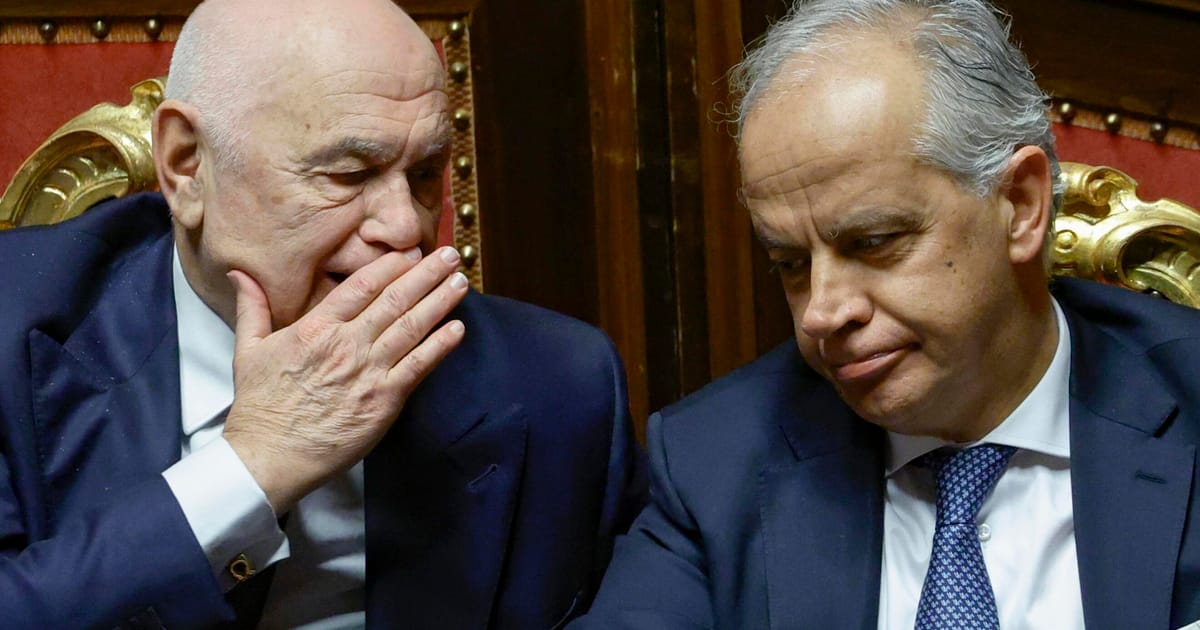The role of two Italian government ministers and a cabinet secretary in letting him go is now under investigation, and the parliament will take a final vote on Oct. 9 as to whether their parliamentary immunity from prosecution should be lifted.
Ahead of the vote, Federico Gianassi, an MP for the opposition Democratic Party and parliamentary rapporteur to the committee that oversees cases against ministers, summarized the prosecutors’ case in a report. POLITICO saw a copy.
Safe majority
While Meloni has a majority in the parliament that will likely shield her ministers from standing trial, the proceedings still threaten to embarrass her and leave her vulnerable to accusations that her government brushes aside international law under pressure over hot-button issues such as migration.
Justice Minister Carlo Nordio, Interior Minister Matteo Piantedosi and Cabinet Secretary Alfredo Mantovano are accused by prosecutors of helping a criminal escape justice from the ICC, and abuse of office after Al-Masri’s arrest on an Interpol warrant on Jan. 19.
A spokesman for Nordio said that as minister of justice he had been “obliged to carry out a preliminary political and legal assessment before forwarding requests,” which took two days, leading to Al-Masri’s release after a procedural error. The documents received from the ICC contained “doubts and inaccuracies” that rendered them void, the spokesman added.
Regarding his part in authorizing Al-Masri’s removal on a state flight, Interior Minister Piantedosi said Al-Masri “was released and expatriated for urgent security reasons” and “because of the danger posed by the subject.” Mantovano’s office did not reply to a request for comment.
